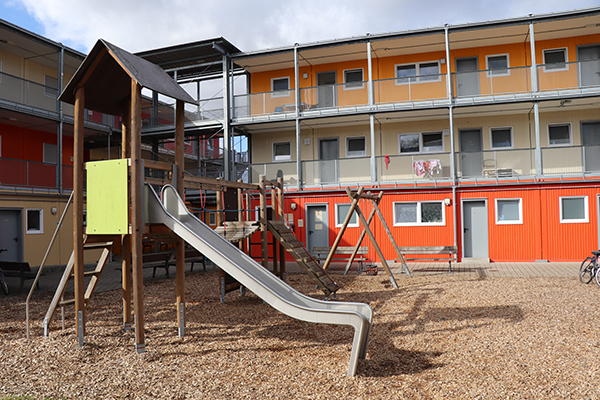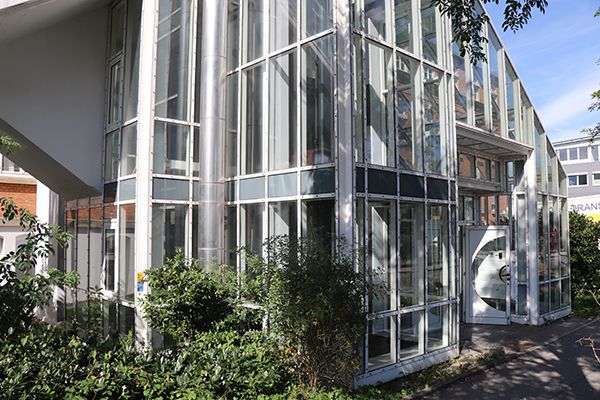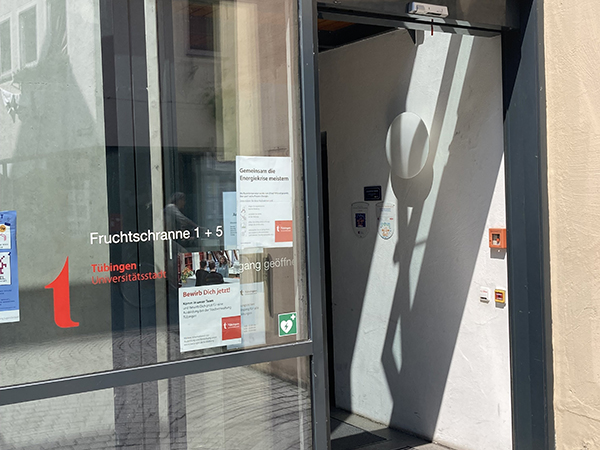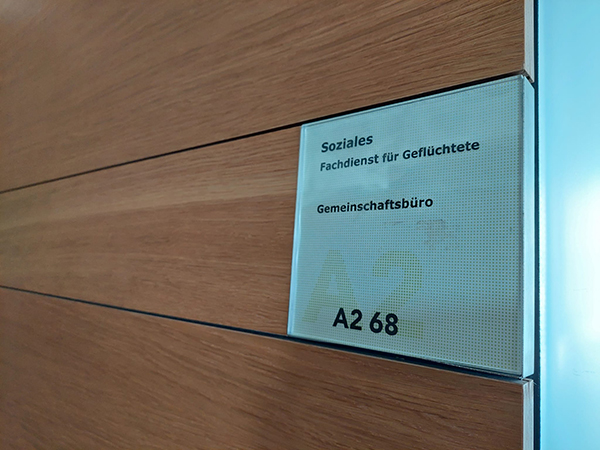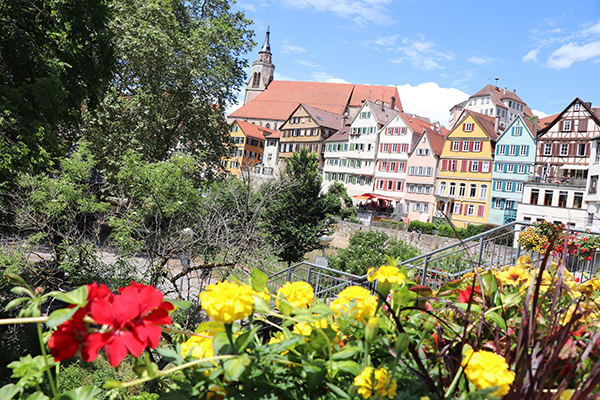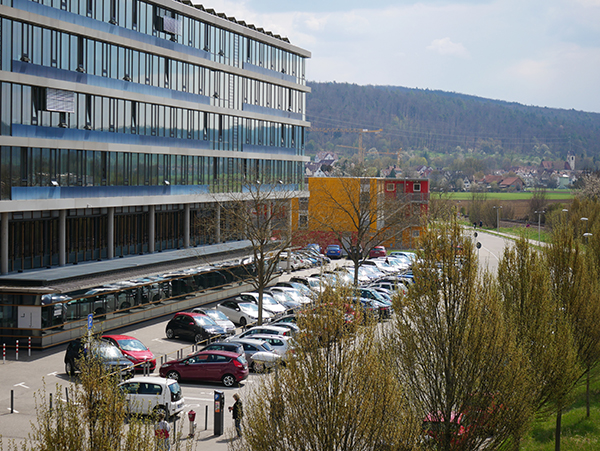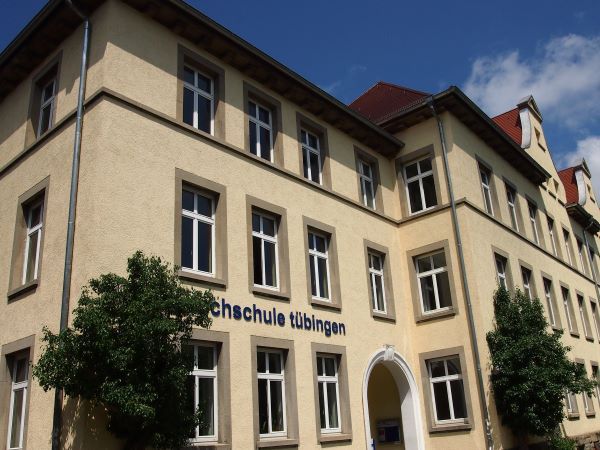Never before have so many people been on the run as now. This is shown by the figures of the current Global Trends Report 2022 of the UN Refugee Agency (UNHCR). According to the report, 108.4 million people were fleeing worldwide at the end of 2022. This figure includes refugees, asylum seekers, internally displaced persons and other people in need of international protection. 40 percent of all refugees are children. In total, this means 19 million more people are fleeing their homes than at the end of 2021—an increase of 21 percent. This is the largest increase in one year… Read More
Category: 1-RESIDENCE – ENG
Fit for forms and offices
Forms are often difficult to understand. German bureaucracy is also quite complicated. In both cases, there is now help. “Form Coaching—Fit for Forms and Authorities” is the name of the new service offered by Café Sozial in Tübingen. Volunteers and employees of the city’s department of assistance for refugees are at Café Sozial (Derendinger Straße 50) every Tuesday between 4:30 and 6:30 pm. There, refugees who have been living in Tübingen for some time and speak some German can receive support—for example, to fill out applications, use online services, understand letters from authorities correctly and get an overview of their… Read More
Certificate of fiction: Mail from Tübingen Foreigners’ Office counts as proof of application
In Tübingen, expired residence permits should actually be valid until the end of January 2024. The city had stipulated this in a general decree. This special path is illegal. The order is no longer valid. All those who now apply for an extension after their residence permit expires need a so-called fictitious certificate as proof of a legal stay in Germany. “As before, these certificates will be issued upon request,” the Tübingen Foreigners’ Office explained in a press release. Anyone who submits an application to the Foreigners’ Office before their residence permit expires can stay in Germany until a decision… Read More
Social workers: First point of contact for many questions
Without them, arriving in Germany would be even more difficult than it already is: the social workers of the specialized service for refugees at the district office. They are the first point of contact for people from all over the world seeking refuge in Tübingen County. In most cases, the men and women become active on their own initiative, because they know when refugees newly arrive in the district—for example Ukrainian refugees at the Hotel Convita in Rottenburg. As one of the social workers reports, they are also on site there two days a week to answer questions. Appointments can… Read More
Improving educational opportunities for immigrant families
The Tübingen Intercultural Network for Parents’ Education (INET for short) will receive a total of 25,398 euros in funding from the state for its “INET in Kitas” project in 2023 and 2024. The state Ministry for Social Affairs, Health and Integration has already funded this project in 2021 and 2022. The INET network was founded in 2010. It aims to “improve educational and participation opportunities for migrant people.” More than 160 volunteers work with INET. One of them is Oula Mahfouz, an editorial member of tünews INTERNATIONAL. Oula Mahfouz knows both sides of the education system. She was a teacher… Read More
Former refugee BM in Ostelsheim
Ryyan Alshebl is the new mayor of the municipality of Ostelsheim in the district of Calw. Born in Syria, he trained as an administrator and was employed by the municipality of Althengstett. Of the 1359 valid votes, 55.4 percent were cast for him in the first round of voting. This is evident from the official final result, which the municipality has published on its homepage. Alshebl writes on his homepage that he fled Syria in 2015 at the age of 21, among other things to avoid having to do military service. He describes his situation: “It was the first time… Read More
How can families with children become Germans
By Qoutayba Abboud Many refugees who came to Germany since 2015 can and want to apply for German citizenship now. In order to obtain German citizenship, certain requirements must be met, such as length of stay in Germany, residency status, German language skills, or livelihood security. In addition, the application process for naturalization of families with children differs from that for single persons. To learn more about this, tünews INTERNATIONAL visited the naturalization office of the Tübingen District Office, which is responsible for the entire district, and found out about the requirements that apply specifically to families with children. The… Read More
New law may enable residence for tolerated persons
As of January 1, 2023, the new opportunity residence law will enable an 18-month right of residence for tolerated people and families. It is in Section 104c of the Residence Act and applies to people who have lived in Germany without interruption since October 1, 2017 or longer and are only tolerated. Other requirements include a commitment to the free democratic basic order, no criminal offenses (i.e., not more than 50 daily sentences for general offenses or more than 90 for offenses under the asylum/residence law), and no repeated intentional false statements about identity or nationality that prevent deportation. Persons… Read More
German test for immigrants: new rules
There is a language test especially for immigrants—the German Test for Immigrants (DTZ). With it, they can prove knowledge at levels A2 and B1. Since January 2023, there are new rules. Anyone who wants to take the DTZ exam must either have a valid entitlement to attend an integration course or attend a course section of the integration course beforehand at their own expense. A course section (module) comprises 100 hours of instruction. At the Volkshochschule (VHS) Tübingen, for example, the full-day language exam costs 150 euros. Listeners of the VHS Tübingen, it says on the VHS homepage, get a… Read More
Money for blankets and food
Von Brigitte Gisel Earthquake victims in northern Syria are still receiving hardly any outside help. TüNEWS editor Youssef Kanjou organizes support on his own initiative. “We are collecting money for northern Syria because of the earthquake. Because people are not getting enough aid and they don’t have enough food.” The appeal reads breathless, desperate—and that’s the situation. “They are doing very badly,” Dr. Youssef Kanjou says of his mother, brother and family and cousins who live in Jenderes in northwestern Syria near the border with Turkey. “They lost everything,” says the former director of the National Museum of Aleppo, who… Read More

